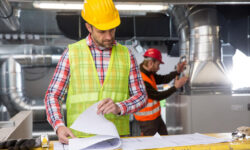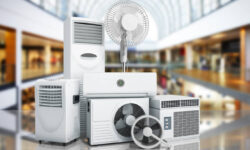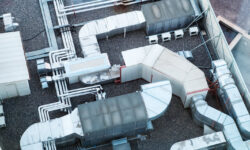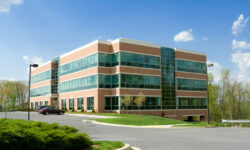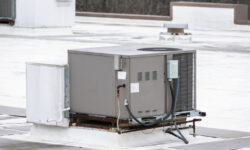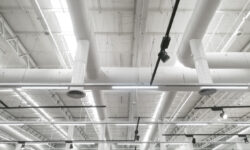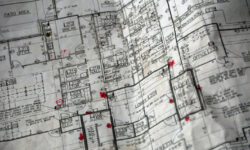Ideally, renovations will result in an improved space. However, with so many details to consider, some might be too easy to overlook. HVAC design is one of these details. Renovating a building or even just a single office can go wrong if HVAC design is not taken into account.
Read more →At first glance, a central humidifier might seem like a strange device to consider, but there are several key benefits of central humidifiers for office spaces. Learn more about central humidifier benefits below. If you’re like many people, you might think that humidity is always the enemy of an enclosed space. After all, if your office has excess humidity, it can cause a host of problems. In truth, what you should actually be aiming for is the optimal humidity level, which is between 40% and 45%. A level above 50% is where discomfort sets in, and one below 30% is where things are considered too dry.
Read more →Looking for alternatives to HFCs? You’re not alone. A2L refrigerants are growing in popularity around the world.
In 1987, a coalition of nations signed a treaty known as the Montreal Protocol. This agreement led to the banning of refrigerants responsible for the depletion of the ozone layer. Throughout the 1990s, ozone-harming chemicals were phased out in favor of a new chemical: hydrofluorocarbons, or HFCs. While HFCs helped heal the hole in the ozone layer, they have terrible side effects — scientists have discovered that HFCs contribute thousands of times more to global warming than CO2.
While it’s economical and responsible to keep appliances alive as long as you can, they have a finite span. Eventually, repairs won’t do any good and replacement will be the only option. You may be facing the difficult decision to replace your commercial furnace, for instance. Can it stand one more repair? Will you be able to get another year of use? Let’s take a look at the signs that a commercial furnace replacement is in your future.
Read more →Restaurants consume significantly more electricity than many other types of businesses. According to recent data, restaurants use about 38 kilowatt-hours (kWH) per square foot of enclosed space. The majority of energy use is linked to processes such as Heating water, Refrigeration, Cooking, or Cooling and heating the building. Having a higher-than-average utility bill comes with the territory of owning a restaurant. The good news is that there are ways that you can reduce your establishment’s electric consumption and your monthly utility bill. One of the best tactics involves upgrading to an efficient HVAC system. On that note, join us as we outline what is the most efficient HVAC system for restaurants. If your system is wasting energy or you are simply ready for an upgrade, this guide’s for you.
Read more →Your building’s HVAC system and its energy use represent a significant cost to your business. If your system wastes energy, that’s money down the drain. The International Energy Agency says that AC alone accounts for 20% of electricity use in buildings today and that we need to improve that value in the future. There are many potential causes of energy inefficiency in HVAC systems. You can watch for these signs to determine whether your HVAC system is wasting energy and take action to improve it.
Read more →Due to their size, commercial buildings require a more extensive HVAC system than residential homes. Some commercial structures have their HVAC systems on the side or back of the building. Others take advantage of large rooftop spaces by using rooftop units, commonly referred to as RTUs. This can give property owners more valuable ground-level real estate for parking or landscaping features.
Read more →Anyone who owns a commercial building knows that ductwork is an integral part of the property’s operations. In order to operate at maximum efficiency, your HVAC ductwork needs to be designed, sized, and installed correctly. Proper duct size is all too often an overlooked feature of commercial HVAC systems. The role that duct sizing and material play in maintaining a safe, comfortable environment should not be underestimated. Having the right size and material for your ducts will maintain comfortable conditions, improve indoor air quality, minimize energy losses, and lower your heating and cooling bills, as well.
Read more →Buying a new commercial HVAC system is one of the most important purchases you can make for your business. It’s your responsibility to choose an HVAC system that provides seamless comfort for clients, customers, and employees. However, choosing the right commercial HVAC system can be overwhelming with the number of choices to pick from. For this reason, you must understand what factors to consider when looking for a new HVAC system.
Read more →Traveling by airplane, driving your car, or engaging in a recreational pursuit can expose you to varying degrees of environmental pollution. While it might be hard to avoid flying or driving, indoor air pollution is one risk you can avoid altogether. Poor indoor air quality has become increasingly concerning, especially over two decades. Growing scientific evidence suggests that indoor air can harbor more contaminants than outdoor air, even in industrial zones. Further, research studies indicate that people spend approximately 90% of their time indoors.
Read more →